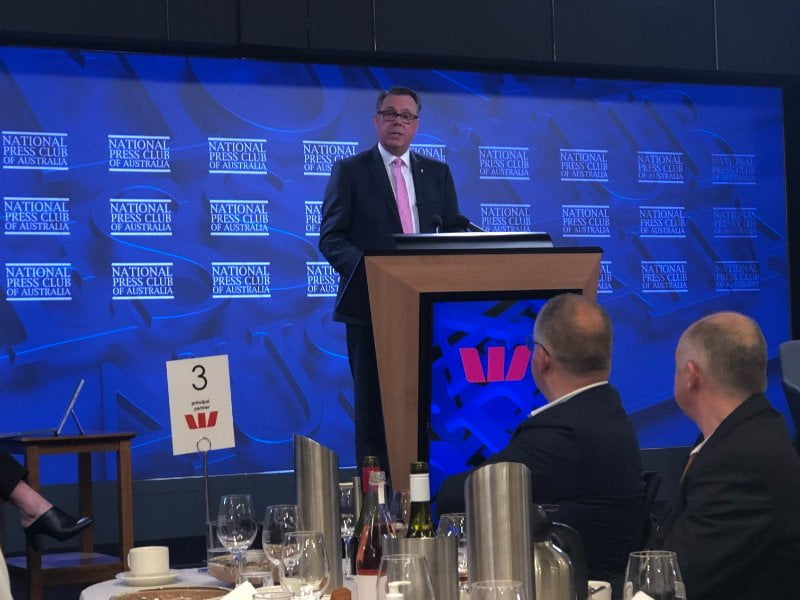The peak body for universities says the recent federal push into research commercialisation is welcome but has overshadowed a worrying drop in vital discovery research funding in Australia.
Addressing the National Press Club on Wednesday, Universities Australia chair and La Trobe University vice-chancellor John Dewar championed the increasing role universities are playing, and called for more government support.
He warned the higher education sector is concerned the previous government’s focus on commercialisation had come at the expense of blue-sky study.
“Our concern at the moment is that the pendulum has swung a bit too far in the direction of the applied side, potentially at the expense of the basics,” Professor Dewar said.

The Coalition introduced a $2 billion research commercialisation package earlier this year following a review of higher education research commercialisation, led by businessman Jeff Connolly and with much of the $8 million review outsourced to global consultants.
Throughout the review, the university sector warned any research commercialisation reforms must not come at the expense of discovery research, and Australia’s often criticised commercialisation rates don’t tell the full story.
While the eventual funding was welcomed, all of it was tied to applied research and industry partnerships, and was not accompanied by any increase in basic research funding.
Professor Dewar said a massive gap between applied and basic research funding remains in Australia, and a continuation of this gap would have consequences.
“Right now, Australia spends $35.9 billion on all types of research, but only $2.83 billion of that on pure basic research,” he said.
“Without that basic research, we’re potentially cutting off the supply of new ideas that we can translate into new products, applications and services. That makes us dependent on others to supply us with those ideas. That’s not a place where Australia should be.”
University vice-chancellors met with new Education minister Jason Clare on Tuesday, hoping for a fresh start, after strained relations with the Coalition.
Mr Dewar said it had been a “very good” meeting but the sector would be realistic about the constraints facing the new Labor government, which has already flagged belt tightening to reign in a $1 trillion national debt.
But he argued an increased university investment would help in the long run.
“This country faces some serious challenges around productivity and around skills. And what we’re saying is ‘we can help’, the Universities Australia chair said.
“So that when government does decide to make an investment – and we’re not we’re not deluding ourselves about how quickly that might be – that we’re ready to act and to partner with governments to address those challenges.”
Mr Dewar said more government funding is needed despite several universities posting massive surpluses, most notably Sydney University’s record $1 billion extra.
He described the biggest surpluses as outliers for the sector, noting several were driven by asset sales, one off government investments, and investment returns. Universities are also squirrelling money away for what is expected to be an even tougher two years.
“2022 is the toughest year because we’ve got fewer international students in Australia than we’ve had since the start of the pandemic. And we could see that coming. We forecast it,” Mr Dewar said.
“So what a lot of universities did was to prepare themselves for what they knew was going to be a very tough 2022 and potentially a very tough 2023. In doing so, they may have generated more surplus revenue over costs. But [it was done] in preparation for what they knew was going to be a really tough year.”
Do you know more? Contact James Riley via Email.

